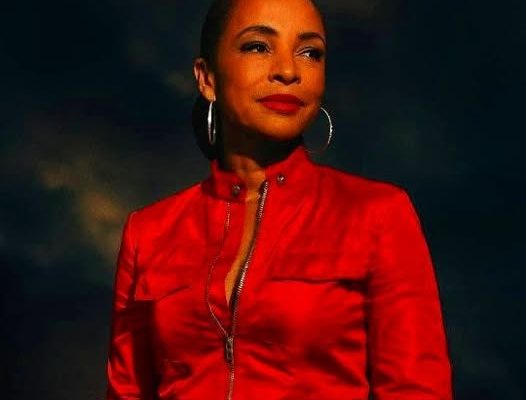Netflix has finally lifted the curtain on one of the most anticipated music documentaries in recent memory, unveiling the official trailer for “Sade Adu: The Voice Beyond Time.” For decades, fans around the world have been waiting for a moment like this, a chance to step inside the story of one of music’s most enigmatic figures. Known for her ethereal voice, her soulful ballads, and her mystique that has only grown stronger with time, Sade Adu has managed to remain both an icon and a mystery. With the release of this trailer, the world is reminded that the singer whose artistry defined a generation is ready to share the untold chapters of her life. The trailer, though brief, carries the emotional weight of a full concert. It opens with archival footage of Sade in the early 1980s, rehearsing with her band before their meteoric rise to fame. Her voice, soft yet commanding, cuts through the years as the screen fades to modern-day reflections from collaborators, musicians, and friends. What strikes immediately is not just the intimacy of the imagery, but the way the documentary seems determined to present Sade not merely as a singer but as a cultural force who changed the way the world understood love songs. The trailer teases never-before-seen interviews with Sade herself, a rarity given her reputation for privacy. Fans know that Sade does not give away her story easily. For years, her retreat from the public eye has fueled both intrigue and respect, as she allowed her music to speak in ways words never could. But in “The Voice Beyond Time,” she begins to let the curtain drop. Snippets of her speaking about her childhood, her Nigerian-English heritage, her struggles with fame, and her fierce devotion to authenticity appear like precious jewels in the footage, hinting at a story that is both vulnerable and empowering.
For those who have followed her journey from the release of “Diamond Life” in 1984, through timeless hits like “Smooth Operator,” “No Ordinary Love,” and “By Your Side,” this documentary feels like a gift. The trailer shows clips of fans lining up for concerts across the globe, testimonies about how her music saved lives, healed hearts, and provided comfort in moments of despair. There is something universal in Sade’s voice—something that transcends generations, languages, and cultures. Netflix seems to have captured that universality, weaving it into a narrative that doesn’t just celebrate her career but honors the impact she has had on the human spirit. The visuals are lush and cinematic, from smoky stages bathed in golden light to intimate home videos capturing Sade in moments of quiet reflection. The documentary promises to balance the legend with the human being, reminding audiences that behind the iconic voice is a woman who has lived, loved, suffered, and grown. The emotional gravity of the trailer alone suggests that this will not be just another music documentary, but an exploration of artistry as a form of survival and transcendence.
Critics and fans have already begun to buzz with anticipation, noting how Netflix has carefully positioned the release as a cultural event. It is not merely about Sade’s music, but about what she represents: elegance without arrogance, strength without spectacle, artistry without compromise. At a time when many artists chase visibility through relentless exposure, Sade remains proof that silence, mystery, and restraint can hold even greater power. The trailer underscores this philosophy by highlighting her absence from the spotlight as much as her presence in it. The contrast between the roaring crowds of her world tours and the serene solitude of her offstage life is striking.
As the voiceovers in the trailer remind viewers, Sade’s ability to connect is not rooted in spectacle but in sincerity. She never needed pyrotechnics or gimmicks; her power has always been in her ability to strip music down to its emotional essence. The documentary will reportedly delve into how this approach shaped her band’s identity and inspired countless artists across genres. One can already imagine younger singers and producers, from R&B to pop to jazz, speaking about how her music influenced them to value depth over trends. Indeed, the trailer hints at appearances from contemporary stars who testify to Sade’s lasting imprint.
But perhaps the most stirring aspect of “The Voice Beyond Time” is its focus on untold stories. For decades, fans have speculated about the deeper inspirations behind her lyrics, her long absences between albums, and her deliberate choice to live far from the glare of celebrity culture. Netflix promises that while not every mystery will be solved, the film will provide a more complete portrait of the woman who has, for many, remained almost mythical. Clips of Sade discussing motherhood, resilience, and her relationship with music suggest that the documentary will show her not as a distant goddess but as a deeply human storyteller who transformed personal truths into universal hymns.
The trailer also underscores the global reach of her music. Audiences in Africa, Europe, the Americas, and beyond are shown singing her songs in unison, their voices blending into a tapestry of devotion. It is clear that this documentary is not just about a British-Nigerian singer; it is about a phenomenon that united listeners across continents. The fact that her music continues to thrive in playlists, films, and live performances decades after its release speaks to its timelessness. In this sense, the title “The Voice Beyond Time” feels especially fitting.
What also stands out is the artistic direction of the film itself. Netflix has spared no effort in crafting a documentary that matches the sophistication of its subject. From the careful restoration of vintage footage to the elegant pacing of the trailer, there is a reverence in the way the story is being told. It feels less like a biography and more like a love letter—to music, to art, to the quiet strength of a woman who refused to be defined by industry expectations.
The trailer ends on a note that is both haunting and hopeful. Sade’s voice, almost a whisper, says, “I never sang to be heard. I sang to be understood.” It lingers in the air like an invocation, leaving viewers both satisfied and desperate for more. That single line encapsulates why this documentary matters: it promises to go beyond the surface, beyond the fame, and into the heart of an artist whose work has always been about connection.
As the release date approaches, excitement continues to swell. Fans have taken to social media to share emotional reactions, with many confessing they cried just watching the trailer. The generational span of her audience is striking: those who discovered her in the eighties express gratitude that her story is finally being told, while younger fans, who may have encountered her music through streaming platforms or their parents’ collections, marvel at the chance to see history unfold on screen. It is rare for a documentary to carry such wide-reaching resonance before its release, but then again, Sade Adu has never been an ordinary artist.
In an era dominated by constant noise, the arrival of “The Voice Beyond Time” feels almost revolutionary. It invites viewers to slow down, to listen deeply, and to reflect on the enduring power of art that is created with honesty and grace. The trailer has already done what Sade’s music has always done: it has stirred emotions, awakened memories, and created a sense of communion among strangers. When the full documentary is finally available, it is almost certain to leave an indelible mark not just on fans of Sade, but on anyone who believes in the transformative power of music.
Ultimately, Netflix has not just unveiled a trailer; it has reignited a global conversation about legacy, artistry, and the enduring human need for songs that speak to the soul. Sade Adu’s story is one that fans have waited decades to hear in her own words, and now, at last, it will be told. The world is ready to listen—not because she demands it, but because her voice has always been, and continues to be, beyond time.



